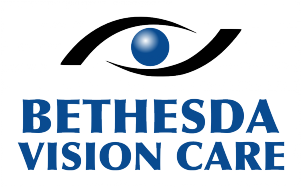
Blurred vision can be unsettling, whether it occurs suddenly or gradually over time. It’s easy to dismiss minor changes in your vision as a temporary issue, but blurred vision can often indicate an underlying problem that requires attention.
At Bethesda Vision Care, we believe every aspect of your vision deserves careful consideration. We’re here to provide the comprehensive care you need to maintain clear, healthy eyesight.
What is Blurred Vision?
Blurred vision refers to a lack of sharpness in your eyesight, making objects appear out of focus or hazy. It can affect one or both eyes, and other symptoms, such as headaches, eye strain, or sensitivity to light, may accompany it. The causes of blurred vision are varied. While some may be relatively harmless, others can indicate serious eye health concerns.
Potential Causes of Blurred Vision
Refractive Errors
- Myopia (Nearsightedness): Difficulty seeing distant objects clearly
- Hyperopia (Farsightedness): Difficulty seeing objects up close
- Astigmatism: Irregular curvature of the eye’s surface
- Presbyopia: Age-related loss of near vision, typically starting in your 40s
These refractive errors are common causes of blurred vision, and glasses or contact lenses can often correct them. However, they can lead to eye strain and worsening vision over time without proper correction.
Eye Conditions and Diseases
- Cataracts: A clouding of the eye’s natural lens, leading to blurred vision, glare, and difficulty seeing at night
- Glaucoma: Increased pressure in the eye that can damage the optic nerve, leading to peripheral vision loss and, eventually, blurred vision
- Macular Degeneration: A condition affecting the central part of the retina, leading to loss of central vision and blurred vision
- Diabetic Retinopathy: Damage to the blood vessels in the retina caused by diabetes, leading to blurred vision and vision loss
These conditions are severe and can lead to permanent vision loss if not treated promptly. Regular eye exams are essential for early detection and management.
Eye Infections and Inflammation
- Conjunctivitis (Pink Eye): Inflammation of the conjunctiva, leading to redness, irritation, and blurred vision
- Uveitis: Inflammation of the middle layer of the eye, which can cause pain, redness, and blurred vision
- Keratitis: Inflammation of the cornea, often caused by infections, leading to blurred vision, pain, and sensitivity to light
Infections and inflammation can rapidly worsen, so treatment is important to prevent long-term damage to your vision.
Dry Eye Syndrome
When your eyes don’t produce enough tears or the right quality of tears, it can lead to dry, irritated eyes and blurred vision. Environmental factors, aging, and prolonged screen time can contribute to dry eye syndrome.
While often seen as a minor issue, untreated dry eye can lead to more severe complications and chronic discomfort.
Systemic Health Conditions
- Diabetes: High blood sugar levels can affect the lens inside the eye, leading to fluctuating vision, including periods of blurred vision
- Hypertension: High blood pressure can cause damage to the blood vessels in the retina, leading to blurred vision
- Migraine: Visual disturbances, including blurred vision or "aura," can occur before or during a migraine
Your vision has a close connection to your overall health, and vision changes can sometimes be the first sign of a systemic health problem.
Why You Shouldn’t Ignore Blurred Vision
Blurred vision is more than just an inconvenience; it’s a signal from your body that something may be wrong. Ignoring these changes can lead to worsening vision and potentially severe health issues.
At Bethesda Vision Care, we aim to help you maintain clear, healthy vision. Our comprehensive eye exams aim to detect refractive errors and signs of eye diseases and conditions that could impact your vision long termng-term.
What to Expect During an Eye Exam
When you visit Bethesda Vision Care, our eye doctors will take the time to thoroughly assess your vision and eye health. Here’s what you can expect during a comprehensive eye exam:
- Detailed Medical and Vision History: We start by understanding your medical history, current health conditions, medications, and any vision concerns you may have. This helps us identify any factors that could be affecting your vision.
- Visual Acuity Testing: This is the familiar "eye chart" test, where you read letters from a distance to determine how clearly you can see.
- Refraction Test: This determines your exact prescription for glasses or contact lenses.
- Eye Health Evaluation: Using advanced diagnostic tools, we examine the front and back of your eyes, checking for signs of cataracts, glaucoma, macular degeneration, and other conditions.
- Additional Testing: Depending on your needs, we may perform other tests, such as measuring the pressure inside your eyes (tonometry), testing for dry eye, or evaluating your peripheral vision.
We aim to provide you with a comprehensive understanding of your eye health and recommend the best action to address any issues.
Request an Eye Exam in Bethesda, MD
Don’t wait to address changes in your vision. Blurred vision is often a sign that something isn’t right, and the sooner you address it, the better the outcome for your eyesight.
Request a comprehensive eye exam at Bethesda Vision Care and let us help you see clearly and comfortably. Your vision is our priority. We aim to provide the highest level of care in the Bethesda area.
